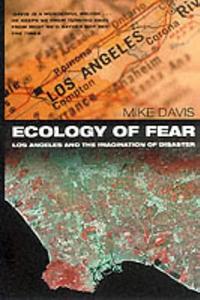Take a photo of a barcode or cover
dark
emotional
informative
tense
slow-paced
dark
funny
informative
medium-paced
Some portions are dates but not as much as you'd expect. More like a 3.5. The first several chapters are stronger than the latter.
challenging
informative
reflective
sad
medium-paced
tbh the last two chapters i skimmed bc i was more interested in the policy and environmental aspects as opposed to the media analysis!
dark
informative
medium-paced
informative
dark
informative
sad
challenging
dark
informative
slow-paced
Davis demonstrates how class and racial anxieties shape the narratives we are told of LA’s ecosystem (extreme weather, wildlife, and landscape), how clashing ideologies and the capitalist/fascist powers at be are often the actual culprits of the firestorm and ensuing destruction, both real and imagined. This is my first Mike Davis book, and count me among the Davis heads now, because I will be reading more from him as soon as I can.
In effect, we think ourselves gods upon the land but are still really just tourists.
Ecology of Fear is loose, if not disparate--an apt analogy of Los Angeles, if you will. It is wild-eyed, it is grim and it does boast a wicked sense of humor. How could it not? Davis embraces the myriad risks and curses which plague this fabled city. Surmising such collectively as fear, Davis concludes that it is only safety (of the Elites only, obviously), a corporate security, which remains a priority, hence surveillance capitalism thrives amongst a low-intensity race war. But the race war is only running cover for the dehumanization of the underclass.
My interest soared with the opening ecological sections and then waned in light of the threat analysis of tornados and killer bees. This is a stirring work, one which has aged rather well.
Ecology of Fear is loose, if not disparate--an apt analogy of Los Angeles, if you will. It is wild-eyed, it is grim and it does boast a wicked sense of humor. How could it not? Davis embraces the myriad risks and curses which plague this fabled city. Surmising such collectively as fear, Davis concludes that it is only safety (of the Elites only, obviously), a corporate security, which remains a priority, hence surveillance capitalism thrives amongst a low-intensity race war. But the race war is only running cover for the dehumanization of the underclass.
My interest soared with the opening ecological sections and then waned in light of the threat analysis of tornados and killer bees. This is a stirring work, one which has aged rather well.







